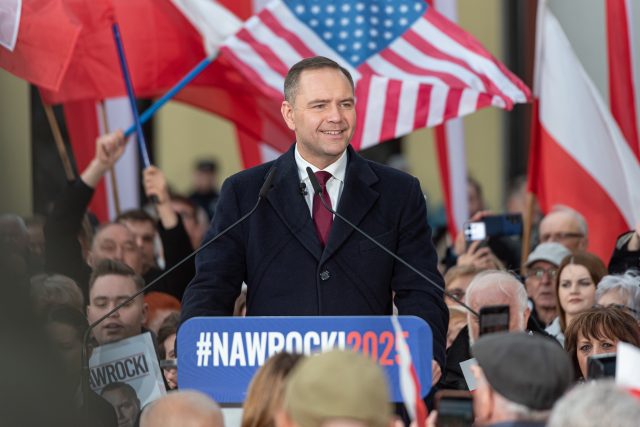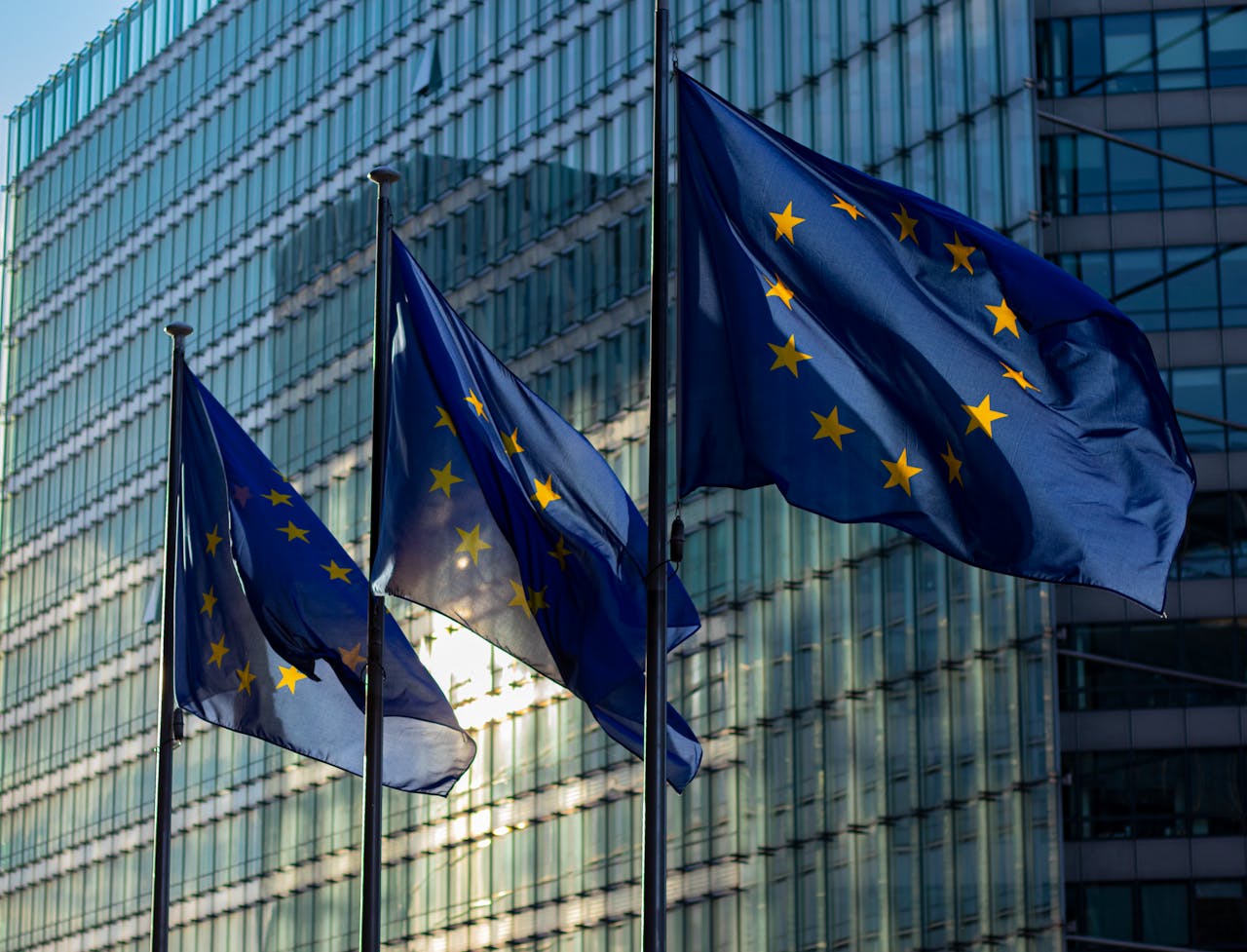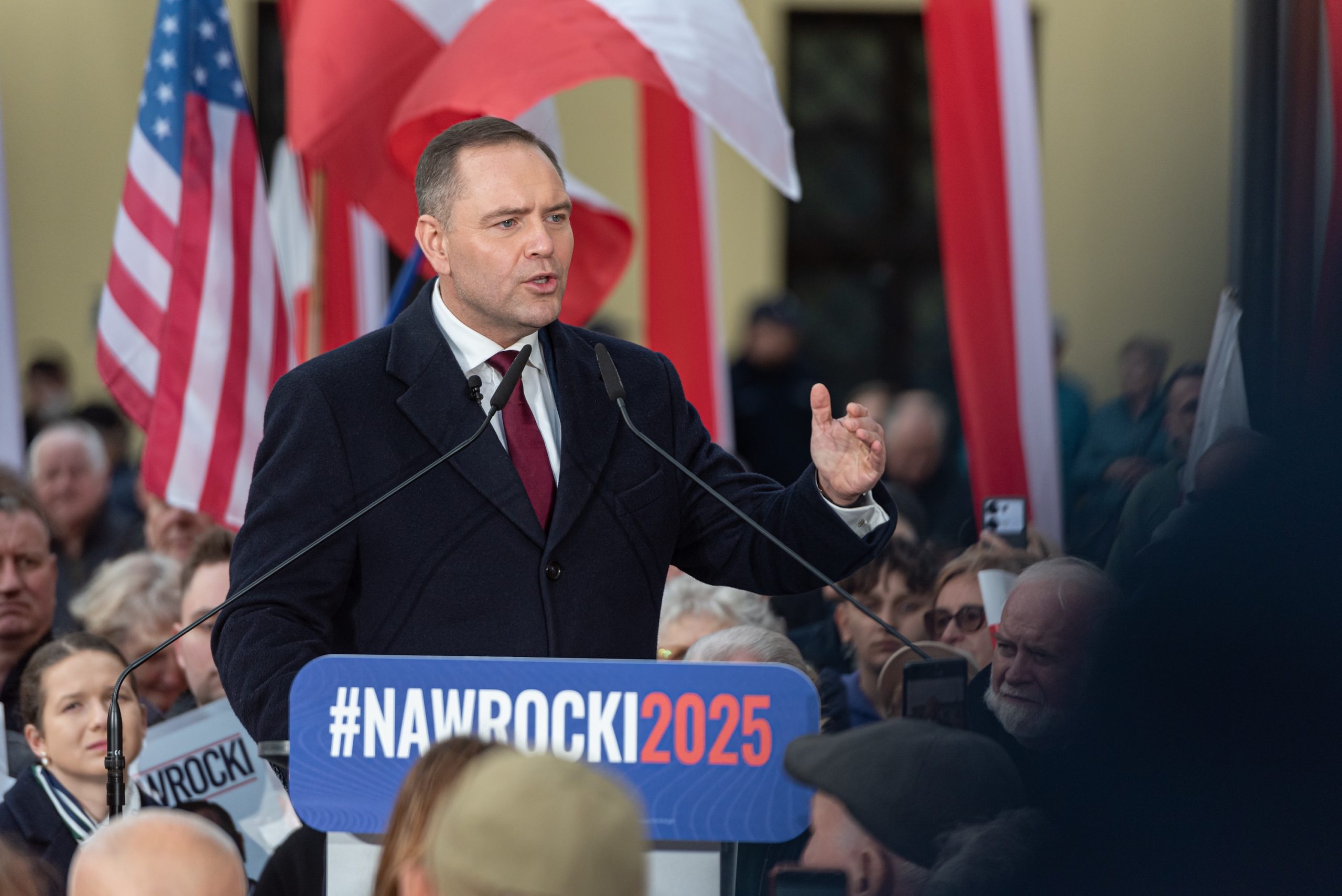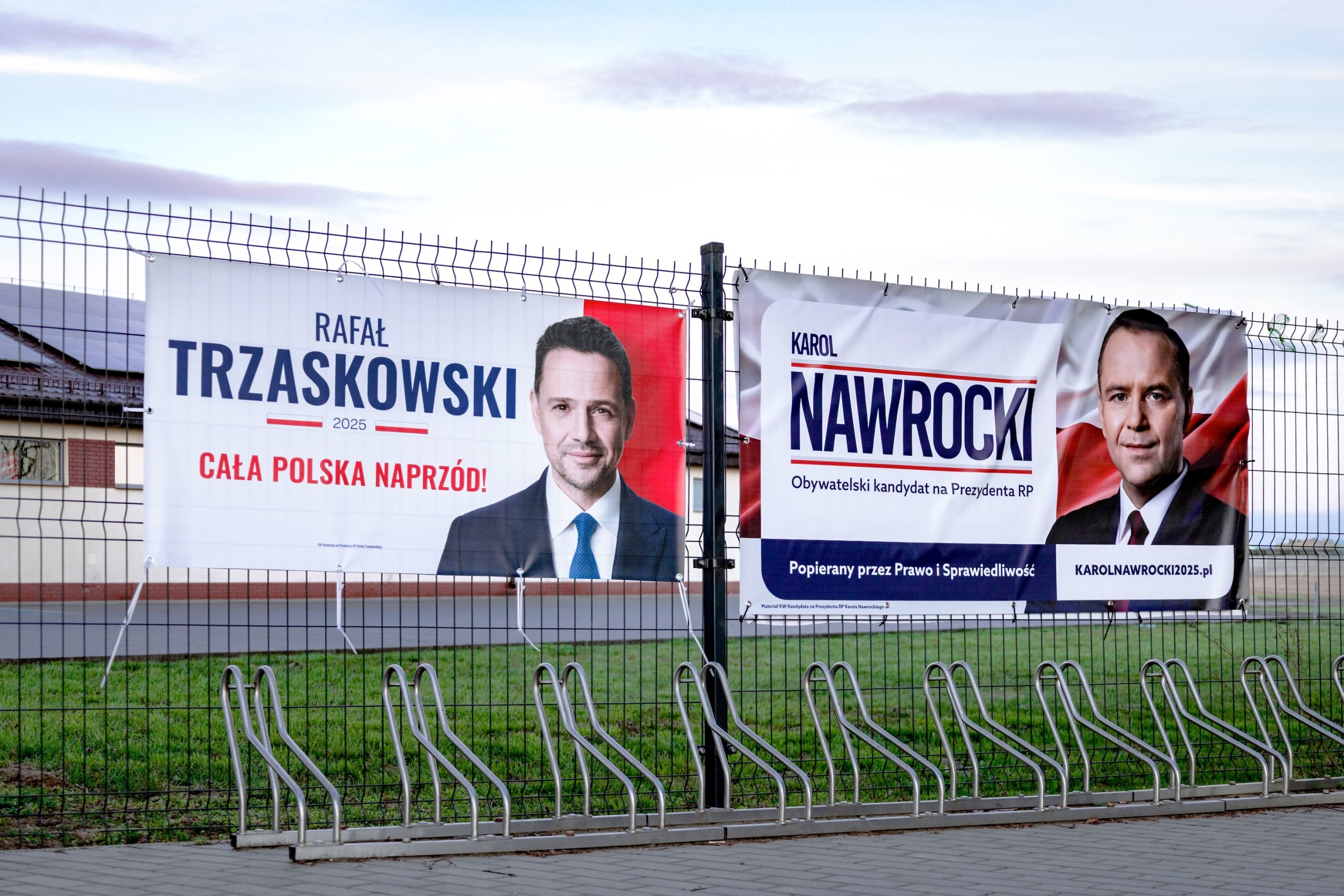
Poland’s presidential election ended in a narrow victory, but with major implications for the country’s democratic and European future. Karol Nawrocki, backed by the conservative Law and Justice party (PiS), won 50.89% of the vote, beating pro-European liberal Rafał Trzaskowski, backed by the ruling coalition led by Prime Minister Donald Tusk. The election result calls into question the Tusk government’s reform agenda and may also deepen the political deadlock in Poland. Although the presidential office is largely an honorific one, the president has the prerogative to reject laws passed by parliament – a tool Nawrocki is expected to use frequently.
A campaign with deep institutional stakes
Donald Tusk, who came to power 18 months ago, promised to restore the rule of law and resume dialogue with Brussels. One of the priorities on his agenda was the cancellation of the judicial reforms promoted by PiS governments between 2015 and 2023, reforms that have been harshly criticised by the European Commission for undermining the independence of the judiciary. The EU’s Court of Justice ruled that new procedures for appointing judges in Poland do not ensure the necessary impartiality, leading to a legal showdown between Warsaw and Brussels. Mr. Nawrocki, a conservative historian and former president of the Institute of National Remembrance, campaigned on national sovereignty and a traditionalist social agenda. Mr. Nawrocki’s anti-Brussels, anti-immigration and anti-liberal reform rhetoric has been welcomed by nationalist leaders in the region. Hungarian Prime Minister Viktor Orbán spoke of a ‘fantastic victory’, while George Simion, leader of Alliance for the Union of Romanians Party, declared that ‘Poland HAS WON’.
A new test for cohabitation
Karol Nawrocki is seen as continuing the political line of former President Andrzej Duda, a staunch PiS ally who frequently used the veto to block Tusk government reforms. With the ruling coalition lacking the qualified majority needed to overcome presidential vetoes, the new presidential administration promises to follow the same course as former president Duda. Political analysts warn of a tense cohabitation with the risk of legislative paralysis. Civic Coalition (KO) MEP Borys Budka argued that ‘PiS is now seeking to overthrow the legitimate government’ and the institutional deadlock will affect the implementation of social and economic policies expected by the population. A growing but internally fractured regional power. Over the past two decades, Poland has made a spectacular rise from Europe’s eastern periphery to an influential regional player. With a population of 37 million, a robust economy and defence spending reaching 5% of GDP, Warsaw has consolidated its position as a military and economic bulwark against the threat from the Russian Federation. Poland now has an army larger than those of France, Germany or the UK, and living standards, adjusted for purchasing power, are approaching those of Japan. This new status also implies increased regional responsibility, especially in the context of support for Ukraine. Mr. Tusk has firmly aligned himself with the pro-Zelensky European axis, attending the ‘Coalition of the Willing’ summit in Kiev with the leaders of France, Germany and Britain. President Nawrocki could put a serious brake on the government’s foreign policy, especially its unconditional support for Ukraine. At home, a battle for women’s and minority rights was waged and the elections polarised the electorate to the extreme. The record turnout – 73% – confirmed once again how much the presidency has become a symbol of Poland’s ideological direction. Trzaskowski proposed relaxing abortion laws, one of the most restrictive in Europe, and legalising civil partnerships for LGBTQ+ couples.

Nawrocki was firmly against, and his victory will most likely mean a veto on any social liberalisation plans. The distribution of the vote reflects clear cleavages: women and highly educated people supported the liberal candidate. The male and less formally educated electorate voted overwhelmingly for the Conservatives. A familiar pattern in the global electoral landscape, but one that in Poland has a special significance because of the historical and religious background of local conservatism.
A mandate in which the veto becomes a political weapon Karol Nawrocki promised to ‘protect Poland’s sovereignty’ and block ‘excessive interference from Brussels’. He also argued in the campaign that economic and social policies should ‘favour Polish citizens’ at the expense of refugees or minorities, in a wording that has drawn criticism from human rights organisations. In a Europe in which the balance between democratic liberalism and authoritarian-nationalist tendencies is becoming increasingly fragile, political analysts see Mr Nawrocki’s election as adding a new knot of tension. And for Donald Tusk’s government, the next few years look set to be a constant struggle for reform in the face of a president determined to resist.
Nawrocki, a new leader of European conservatism
Mr. Nawrocki’s victory comes just two weeks after George Simion’s defeat in Romania’s presidential election, signalling a revival of conservative forces in central Europe. Andrej Babiš, leader of the Czech Eurosceptic opposition, has congratulated Mr. Nawrocki and could benefit politically from the wave of support Mr. Nawrocki’s victory has created ahead of Czech elections in October. Even European Commission President Ursula von der Leyen sent a message of co-operation, saying she was confident she could continue ‘good cooperation’ with Poland, even though signals from Warsaw point to a break in vision for the European future. A result reflecting a deeply divided country Rafał Trzaskowski recognised his defeat and delivered a message of unity:
“I regret that I failed to convince the majority of citizens of my vision for Poland. I congratulate Karol Nawrocki on his victory”.
In post-election speeches, PiS leaders treated the poll as a ‘referendum’ against the Tusk government. At the same time, reactions in society ranged from resignation to concern.
“Everything was on a knife’s edge,’ said a young IT specialist in Warsaw. But the way the vote was split shows how deeply divided we are.”
Financial markets reacted quickly: the Warsaw stock exchange’s main index fell almost 2% in early Monday and the zloty depreciated against the euro – a clear sign of fears about the stability of the government and the continuity of reforms.
Polish conservatives thank George Simion for Nawrocki’s backing: “A revolution of common sense is needed across Europe!”
George Simion supported Karol Nawrocki, backed by the conservative Law and Justice party (PiS), in the Polish presidential elections. For his support, the AUR leader, received thanks from both President-elect Nawrocki and former Polish Prime Minister Mateusz Morawiecki, the current president of the European Conservatives and Reformists, an organisation where Simion was elected on the 14th of January as vice-president.
“I would also like to thank ECR Vice President George Simion for his support during President Karol Nawrocki’s campaign and for his belief that conservative values will prevail in the end! We will never give up! Together – as ECR in the European Parliament – we will continue to fight to make sure that this great Polish victory becomes an example for the rest of the continent, showing that a revolution of common sense is needed across Europe!”, Morawiecki wrote on X, on the X network.
Mateusz Morawiecki served as prime minister of Poland between 2017 and 2023, representing the conservative Law and Justice (PiS) party, which also supported Poland’s newly elected president Karol Nawrocki.
Which economy does Poland enter Karol Nawrocki’s term in office with?
What are the limits of power and the new president’s economic plan for a country at war on its borders? Poland entered the term of sovereignist President Karol Nawrocki’s term in office on the brink with a series of ambitious strategies but also, according to most European analysts, heralding the beginning of a potentially massive systemic rift between the president and the government led by Donald Tusk. The hostile cohabitation between the two parties is set to create, specialists say, a stumbling period for the country’s economy, with legislative deadlocks, a massive downturn in capital market confidence. And ordinary people will suffer the most when the anti-European rhetoric will hit the wave of investment secured by Tusk over the past two years, energy security and, in general, the clearly European direction of one of the most dynamic economies in Eastern Europe, which Romania has often taken as a benchmark in recent years.
When Donald Tusk returned as Poland’s chief executive in 2023, after nearly a decade of authoritarian rule by the Law and Justice Party (PiS), Poland’s economy was on a straight line of economic stagnation, with investment having grown for several years by just 0.1 per cent, investment put on hold systemically, and relations with Brussels deadlocked over disputes over the rule of law. According to a government report earlier this year, in just a few months, the Tusk-led team managed not only to unlock more than €50 billion from the National Recovery and Resilience Plan, but also to launch an economic programme of a scale rarely seen on the continent, which contained, according to the directions set out by the government, a systemic effort aimed at raising national investment to an all-time high of 700 billion zlotys by 2025.
“Investments in Poland in 2025 will exceed 650 billion zlotys. The government is convinced that this is a conservative estimate. Today I can say with confidence that the figure will be closer to 700bn. And it is a record amount, unprecedented in the history of the Polish economy,” Donald Tusk said from the rostrum of the Warsaw Stock Exchange in a speech centred on vision and strategic direction in February 2025.
He proposed investments in science, energy transition, advanced technologies, port development and railway modernisation, strengthening the capital market and supporting entrepreneurship, each component with ambitious budget allocations and clear targets. For example, the government has already earmarked PLN 2.1bn for research and innovation alone, and PLN 180bn for railway infrastructure and logistics. The response of markets and investors to this new climate has been immediate, considering that the Warsaw Stock Exchange’s main index WIG20 became one of the best performers in the world in the first months of 2025, and the zloty appreciated by more than 10% against the dollar, according to a recent analysis by Bloomberg. It should also be recalled that the International Monetary Fund has predicted that GDP per capita adjusted to purchasing power parity will, for the first time, exceed Japan’s level, which is also considered a symbolic indicator of the accelerated pace of economic convergence.

All the efforts of Donald Tusk’s government have been centred, as a basic principle, on re-anchoring Poland in the European mechanisms and on re-establishing the Polish population’s trust in the principles of Brussels. Poland, in the last two years, has been one of the EU countries with the greatest openness to the European Green Pact, the energy transition, as well as to digitisation and press freedom policies, all of which have, in fact, ultimately led to the resumption of financial flows from Brussels and repositioned the country as a central player in the geopolitical centre of gravity of the European Union.
“Until now we were dreaming of catching up with the developed countries. Now, for the first time, we can say that it is possible to overtake them,” Tusk said in a interview with Euronews, even with the aim of reiterating the value of European engagement itself.
In the years before Donald Tusk returned to Polish politics, PiS’s sovereignist rhetoric and constant conflict with EU institutions led to the suspension of EU funds and a drastic fall in investor confidence. But the pre-2023 period is today practically the clearest indicator of the period to come, because although the government remains in power, a PiS president risks upsetting the very balance that Tusk has quickly and painstakingly regained in just two years.
How can Nawrocki really get involved in Poland’s economy and why does the PiS victory in the 1st of June elections matter?
If in Romania the sovereignist movement has proved to have volatile leaders, lacking practical economic visions and more focussed on facile speeches about peace and conspiracies susceptible to social fears felt or built among the people, Karol Nawrocki comes to the Presidential Palace with an arsenal of vetoes and a declared ambition to prevent the consolidation of Donald Tusk’s executive power, a message that was heavily used in the election campaign. Immediately after the results were announced, Mr. Nawrocki said ‘we will not allow Donald Tusk to consolidate his power’.
It is important, for the sake of clarity, to note that even though, as in Romania, the government has a very important executive role in the state and both republics operate on a semi-presidential model, the Polish president has far more powers and freedoms than the Romanian one. Mr. Nawrocki, fresh at the helm of the country, has important powers when it comes to political appointments, he can directly block laws and government decisions, while in Romania the president can only ask for re-examinations of normative acts, and he also has the right of veto over the country’s budget (while the Polish president can only refer the matter to the Constitutional Court). Thus, by being able to block any law passed in parliament, especially as the current Tusk government’s majority does not have the two-thirds needed to override a presidential veto, it is set to change the dynamic between the two branches of state power. Former president Andrzej Duda, although allied with PiS, applied this right selectively, but Nawrocki used it as part of his political message to win votes. Political analysts expect the new president to turn the prerogative into a strategy to force early elections. In such a scenario, PiS, together with the far-right libertarian Konfederacja, could, if they co-operate, hold a fragile majority, but enough to sabotage the pro-European majority’s legislation.

According to one political calculation, almost 90% of Konfederacja voters in the first round supported Nawrocki’s candidacy in the second round, despite leader Sławomir Mentzen’s official refusal to back him. Over and above the parliamentary arithmetic, however, is the ideology of the new president, who during the campaign signed a programme declaration drafted by Mentzen, the far-right leader, which included eight points, from blocking new taxes to rejecting any laws on gun regulation or freedom of speech. Nawrocki has thus indirectly taken over part of the American-inspired populist discourse, rooted more in the MAGA ethos than in classic European conservative doctrine. According to British political scientists, the state’s control institutions, such as the Constitutional Court, the National Audiovisual Council and the Electoral Authority, will fall directly under the political sphere of influence, as they had in the past, when PiS was in power. Such a scenario could even lead to the budget not being passed, another massive trigger for early elections, through which Nawrocki’s ultra-conservative party hopes to regain power in parliament by 2027.
On the economic front, Donald Tusk’s ambitions to simplify taxation and digitise the administration, as well as bills on energy decentralisation, investment deregulation and protecting the independence of the national bank could soon be blocked, although he warned in a pre-election interview that ‘every month lost in political wrangling is a month lost for Poland’s economic future’. Karol Nawrocki’s victory should therefore be seen not just as a symbolic shift in the institutional balance, but as a genuine reversal of trajectory – from reformist and pro-European dynamism to stagnation marked by political duelling, lack of legislative coherence and risks of relapsing into conservative liberalism. It is, in essence, a choice between two radically different visions of the state and the economy, of Poland as the centre of Europe’s centre of gravity or as a sovereignist periphery with allies increasingly distant from Brussels.
Nawrocki’s economic vision. How did the PiS candidate actually win the votes of the people and what lies behind promises not to raise taxes?
President Nawrocki won citizens’ votes through an aggressive campaign of populist slogans, including the promise of selective tax exemptions such as ‘zero income tax for families with at least two children’, the abolition of VAT on certain categories of goods and services, the exemption of inheritance taxes, and the abolition of the so-called ‘Belka tax’, a capital gains tax that has so far provided a large share of budget revenues in Poland. Although at first glance the principles appear to be rooted in right-wing liberalism, focused on absolute freedom for business, the current president’s list of proposals has been criticised by representatives of big business and business associations, who believe that Nawrocki does not actually have a coherent fiscal strategy and that his tax strategies are no guarantee of economic stability.
“Investment prospects are strongly linked to predictability. You can’t attract capital in an economic climate built on vetoes and fiscal improvisation,” Wojciech Kostrzewa, president of the Polish Business Roundtable, said shortly before the election.
Mr. Nawrocki has declared himself a strong supporter of exploiting coal, a historically massive resource in Poland, with the current government accelerating investment in renewables and nuclear. He has said he will veto any bill that includes ‘green taxes’, emission penalties or budget allocations to adapt to the European Green Pact, a speech that has gone down well with small entrepreneurs outside big cities, employed in fragile local economies, often sceptical of the benefits of EU membership. First reactions from the markets and the beginning of the end for the economic boom secured by Tusk.
In the first part of 2025, Poland had a stable currency, performing stock market indices, robust economic growth forecasts of 3.3% per year and a very promising GDP per capita, as mentioned above. After the election, Nawrocki’s victory produced an immediate correction on the stock market, with the WIG20 falling by up to 2% after the opening of the market. Experts warn that for investors, Poland under Nawrocki would mean a deadlocked government with a president hostile to reform, perhaps even a return to the suspension of European funds that have in the past pushed the country into rating downgrades. These very days the markets are also waiting for signals on the continuity of EU funds, as Tusk managed to release more than €50bn from the NRRP last year, but now the continuation of absorption is heavily dependent on a series of reforms in justice, environment, digitalisation – the very nerve points of Nawrocki’s anti-EU campaign. The institutional instability and anti-European rhetoric of the new president could thus redirect foreign capital towards countries perceived as more predictable, including Slovakia, the Czech Republic or even, why not, Romania. And on the border war and strategic uncertainties within NATO, the new president opposes Ukraine’s membership of the North Atlantic Alliance, and the EU, ‘as long as unresolved bilateral issues persist’, he emotionally appeals to the animosities stirred up by sovereignists in Poland in recent years, which has received the bulk of war refugees. According to The Guardian, Nawrocki ‘did not hesitate to appeal to latent anti-Ukrainian sentiment in Poland, openly criticising the government’s policy of unconditional support.’
Karol Nawrocki said that he favours ‘transatlantic alliances’ over rapprochement with Brussels, playing directly into the strategy of dividing the EU bloc that US President Donald Trump has put into practice in the most visible way since taking office in the White House, principles also supported by Hungarian Prime Minister Viktor Orbán. Poland is currently a mirror image of what could have happened if Romania had followed the same allegedly sovereignist scenario, but one that lacks a coherent structure for managing the problems of the state. The ace that the country still has up its sleeve, however, is the progress made in recent years and the extent to which a swift reaction from the markets could force the new president’s hand into a more measured approach to his own ambitions. Otherwise the smog created in winter by coal pumping black smoke from smokestacks will return to the streets of Poland’s cities, and the prospects for the economic and geopolitical welding of the European flank for a just peace in Ukraine are also becoming increasingly dim.



 Subscribe
Subscribe